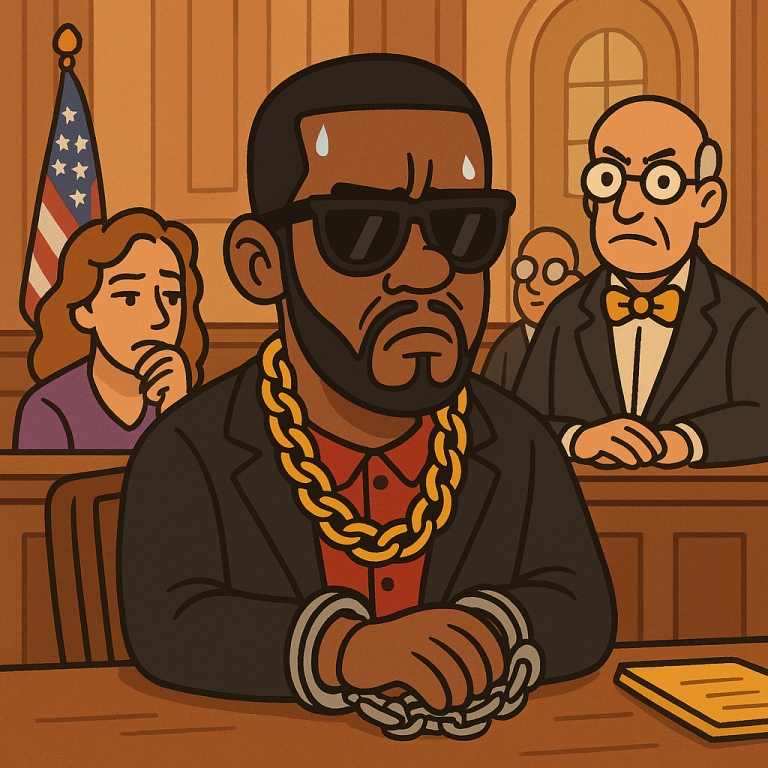The ongoing trial of Sean John Combs—better known by his stage names Diddy, formerly Puff Daddy and P. Diddy—has once again drawn global attention to the deep moral corruption that permeates the music industry. Commencing on May 5th, 2025, the trial is expected to uncover far more than what is currently known.

At 55, the American rapper and record producer stands accused of racketeering conspiracy, sex trafficking, and the transportation of individuals for prostitution. While media coverage remains focused on the sensational aspects of the case, Muslims must pause and examine the spiritual implications of such a life and the values it represents.
As far as Islam is concerned, Diddy is not an icon nor a legend—he is a mujrim (criminal), and has long been one. What endeared him to the West—his unchecked speech, music, and indulgent lifestyle—was, in fact, a clear path of spreading corruption (fasād) on earth.
Allaah says:
Table of Contents
ToggleThe Immorality Behind the Glamour
Key Takeaway: Zina doesn’t just corrupt individuals—it corrupts society. What we are seeing now is simply the long-term consequence of a culture that glamorises sexual immorality, drug abuse, and rebellion against divine guidance.
The Dark Truth About Music and Fame
A Cautionary Tale for the Youth
It is not an overstatement to say that society is on the brink of collapse when those who should be role models—the righteous, the learned, the sincere—are replaced by the indecent and depraved. If we do not guide our youth, they will be guided by TikTok trends, chart-topping songs, and corrupted voices on screens.

Food for thought